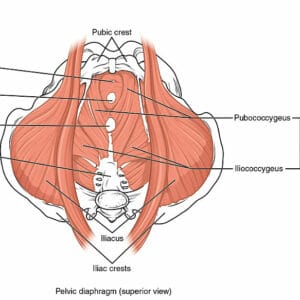Prenatal and postpartum health are crucial aspects of a woman’s overall well-being during and after pregnancy. These phases of pregnancy and childbirth come with unique physical, emotional, and social challenges, so it’s essential to prioritize both prenatal and postpartum care to ensure a healthy pregnancy, safe delivery, and a smooth transition into motherhood. Here’s an overview of prenatal and postpartum health:
Prenatal Health:
- Preconception Care: This involves preparing for pregnancy before conception by maintaining a healthy lifestyle, managing chronic medical conditions, and taking necessary supplements (like folic acid) to reduce the risk of birth defects.
- Prenatal Care: Regular prenatal check-ups with a healthcare provider are essential to monitor the health of the mother and the developing fetus. These visits include physical exams, ultrasounds, and various screenings to detect potential complications.
- Nutrition: A balanced diet rich in essential nutrients, such as folic acid, iron, calcium, and omega-3 fatty acids, is crucial during pregnancy. Proper nutrition supports the growth and development of the baby and helps prevent complications like neural tube defects.
- Exercise: Safe and regular physical activity can help alleviate common discomforts of pregnancy, maintain muscle tone, and prepare the body for childbirth. Consult with a healthcare provider for appropriate exercise recommendations.
- Prenatal Vitamins: In addition to a healthy diet, prenatal vitamins can help ensure that both the mother and baby receive essential nutrients.
- Avoid Harmful Substances: Smoking, alcohol, and illicit drug use should be completely avoided during pregnancy as they can harm the developing fetus.
- Stress Management: Reducing stress through relaxation techniques like yoga, meditation, or counseling is essential for prenatal health. High levels of stress can have adverse effects on both the mother and baby.
Postpartum Health:
- Immediate Postpartum Care: After childbirth, the healthcare team monitors the mother for any immediate complications, such as excessive bleeding or infection. The newborn is also evaluated for health and well-being.
- Postpartum Check-ups: Mothers should attend postpartum check-ups to ensure their physical and emotional recovery. These visits may include assessments of healing after vaginal or cesarean delivery, breastfeeding support, and discussions about birth control options.
- Emotional Well-being: Postpartum depression (PPD) is a common condition that can affect new mothers. It’s essential to seek support and treatment if experiencing symptoms like persistent sadness, anxiety, or mood swings.
- Breastfeeding Support: For mothers who choose to breastfeed, support and guidance from lactation consultants or healthcare providers can be invaluable in ensuring successful breastfeeding.
- Nutrition and Exercise: Eating well and gradually reintroducing exercise into the daily routine can help mothers regain their strength and energy postpartum.
- Birth Control: Discussing and selecting an appropriate form of birth control with a healthcare provider is essential to prevent unintended pregnancies.
- Support System: Having a strong support system, including family and friends, can greatly assist new mothers during the challenging postpartum period.
Both prenatal and postpartum health require personalized care and attention. It’s important to consult with a healthcare provider for guidance and to address any concerns or complications that may arise during these phases. Taking care of both the physical and emotional aspects of pregnancy and childbirth is vital for the well-being of both the mother and the newborn.
How can I find a pelvic health physiotherapist near me?
We have 8 locations with pelvic health physiotherapists to help you.
-
- Pelvic Health Physiotherapy Etobicoke – Triangle Physiotherapy Etobicoke
- Oakville Pelvic Health – Triangle Physiotherapy Oakville
- Pelvic Health Physiotherapy North York – Triangle Physiotherapy North York
- Mississauga Pelvic Health – Triangle Physiotherapy Mississauga
- Downtown Pelvic Health – Triangle Physiotherapy King West
- Uptown Toronto Pelvic Health – Triangle Physiotherapy Lawrence Park
- Pelvic Physiotherapy Downtown Toronto – Triangle Physiotherapy Queens Quay
- Mississauga Pelvic Health – Triangle Physiotherapy Erin Mills



